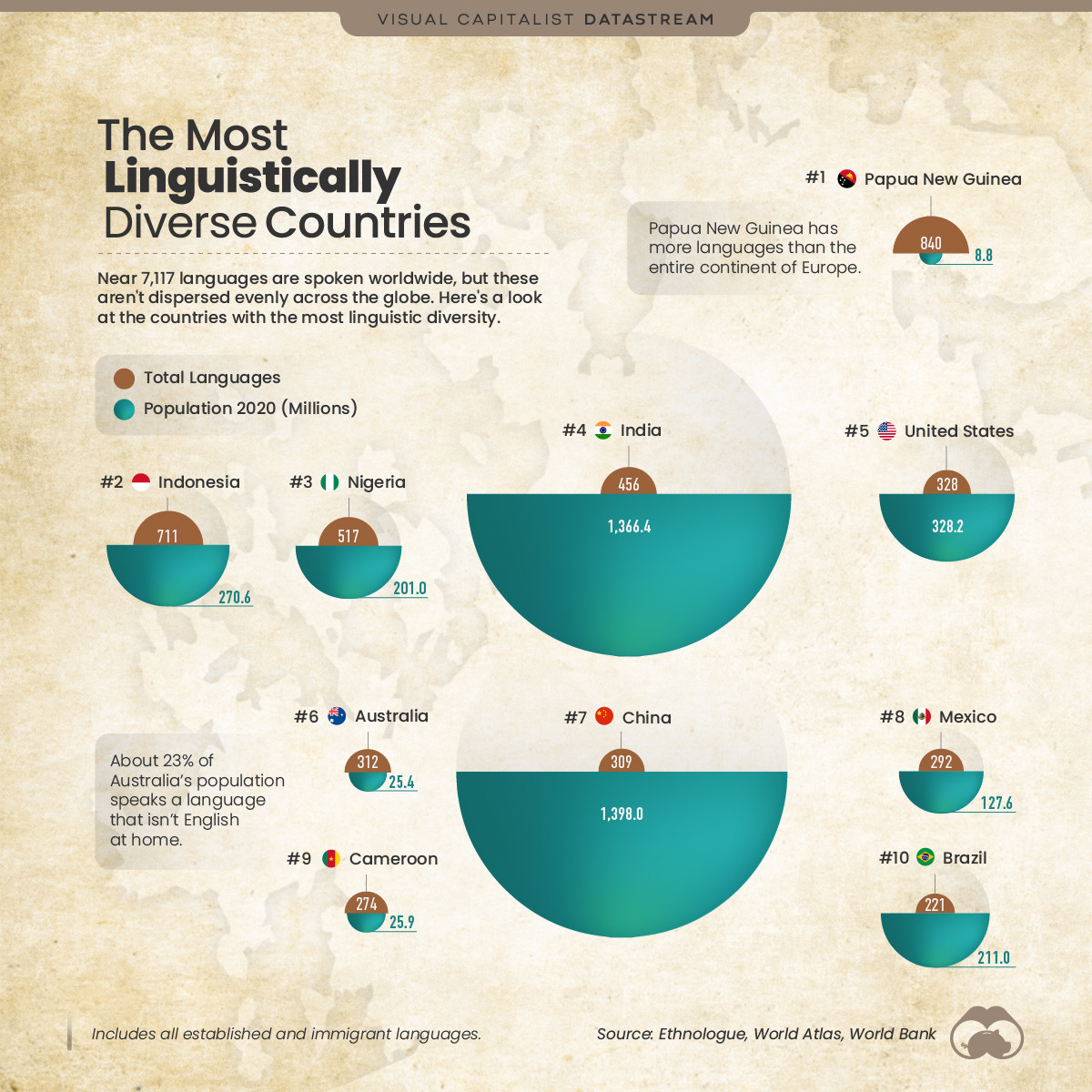Ranked: The countries with the most linguistic diversity

An island in Papua New Guinea, the most linguistically diverse country in the world. Image: Unsplash/Ganda Lukman
- Papua New Guinea is the most linguistically diverse country in the world, with approximately 840 languages used.
- Around 40% of the world's languages are at risk of dying out, as some languages become less widespread with each new generation.
- Organizations such as the United Nations are takings steps to continue these languages.
Ranked: the most diverse countries by language
Thousands of languages are spoken worldwide, but only a fraction are used widely. In fact, the speakers of 23 languages account for more than half of the total global population.
Despite this, there are still pockets around the globe that are rich in linguistic diversity. Here’s a look at the top 10 countries where the most languages are spoken.
These numbers include established and immigrant dialects.
Top 10 countries with the most languages
Despite a population of just 8.8 million, Papua New Guinea comes in first with a total of 840 languages spoken across the country. To put things into perspective, that’s almost 12% of the world’s languages spoken in an area that’s roughly the size of California.

A likely reason for the country’s linguistic diversity is its isolation from modern life. Over 80% of Papua New Guinea’s population lives in rural areas and has minimal contact with external influences or other tribes.
Second on the list is Indonesia, with 711 different languages used throughout the country. Like Papua New Guinea, a major factor that could explain its language diversity is its geography—Indonesia is made up of around 17,500 islands (although more than 7,000 of them are uninhabited).
What's the World Economic Forum doing about diversity, equity and inclusion?
The future of language diversity
While it’s clear that a multitude of languages still exist, around 40% of the world’s languages are at risk of dying out. Even in parts of the world where immense linguistic diversity remains, languages are disappearing with each subsequent generation.
In efforts to combat this, organizations like the United Nations are actively trying to promote and protect these endangered languages.
Don't miss any update on this topic
Create a free account and access your personalized content collection with our latest publications and analyses.
License and Republishing
World Economic Forum articles may be republished in accordance with the Creative Commons Attribution-NonCommercial-NoDerivatives 4.0 International Public License, and in accordance with our Terms of Use.
The views expressed in this article are those of the author alone and not the World Economic Forum.
Stay up to date:
Geopolitics
Forum Stories newsletter
Bringing you weekly curated insights and analysis on the global issues that matter.
More on Geo-Economics and PoliticsSee all
Isabel Cane and Rob Strayer
November 13, 2025







